Developed by Charley E.M. Waddell, OTR/L
Harnessing and addressing big emotions at home, especially during this time of isolation is critically important for parents and children alike. Our children are no longer spending the majority of their day surrounded by and engaged with their peers. Instead, they are experiencing a myriad of realities and exposures that range from stressed out parents and isolation from their friends. Birthday parties and play dates no more. Sports and activities paused indefinitely. For kids, this can manifest itself in bursts of anger or sadness.
Keep reading for five tips to address big emotions and help your children cope with feelings of fear, sadness, frustration and so much more.
Tip 1: Encourage an Environment of Sharing and Discussion
Create an open sharing environment and encourage discussion. Share how you feel and encourage kids to do the same through emotional conversations and activities. Feelings and emotions – both good and bad – need to be accepted and processed.
Tip 2: Consider the Iceberg of Emotions
Consider the iceberg of emotions. If a child reports being ‘mad’, then consider the emotional iceberg. Work together to tease apart true emotion vs. those emotions outwardly displayed. Often a child’s presentation of being ‘mad’ is resulting from feeling frustrated, helpless, unheard, etc. Breaking down emotions allows us to do a better job problem solving and managing true emotions.
Tip 3: Creative Self-Expression
Allow for creative self-expression (drawing, dancing, etc.) to share emotions. This is great for all children, but incredibly powerful when language deficits are present. Ask your child to ‘show you’ how they feel as opposed to ‘telling you’ how they feel.
Tip 4: Develop Coping and Calming Strategies
Teach coping and calming strategies to manage emotional fluctuation as it comes. How do you deal with emotions? For example, feeling sad or mad; or, feeling frustrated and overwhelmed is going to happen as these are natural emotions. It’s perfectly normal and okay to experience these range of emotions. Teaching calming and coping mechanisms and having strategies available teaches kids to manage their emotions successfully!
Coping strategies include things such as:
- Deep breaths
- Big movement
- Music
- Hugs
- Snuggled tight in blanket
- Straws, gum, oral movement
- Hand fidgets and favorite toys
- Punch a pillow
- Take a break
…and more!
Charley E.M. Waddell, OTR/L developed a quick little social story to help calm big emotions.
Tip 5: Find the Positive
Find the positive! Use language to reword statements into positive ‘I can’ statements to empower our kids. Spend time focusing on what is good or fun or ideal in their world.
Emotional conversations work for kids of all ages!
Big emotions are a natural part of life for children and adults. Confronting these emotions is important and necessary for families to adjust to what has become a new normalcy. Self-expression, sharing and creating environments that encourage discussion and promote creativity are all ways to help kids cope with the changing times.
If you want to learn more about occupational therapy, or feel that it’s time to seek the help of a professional, please visit one of our 200+ physical therapy clinics throughout Florida, Georgia, Kentucky, North Carolina, South Carolina, Tennessee, Virginia, Missouri or Illinois to schedule an appointment at the clinic nearest you.
